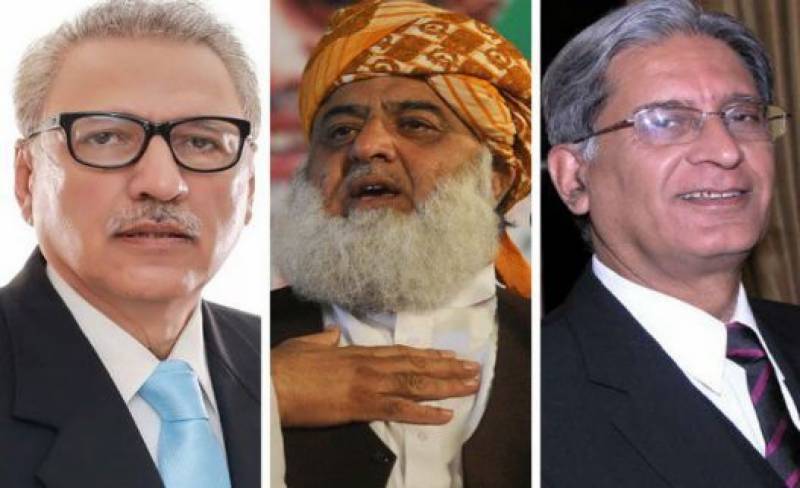Islamabad (Staff Report/Agencies): Voting for the election of 13th President of Pakistan has been concluded at the Parliament and four Provincial Assemblies.
Arif Alvi of Pakistan Tehreek-e-Insaaf (PTI) Aitzaz Ahsan of Pakistan Peoples Party (PPP) and Maulana Fazl ur Rehman, is the joint candidate of the other opposition parties including Pakistan Muslim League-Nawaz (PML-N), Muttahida Majlis-e-Amal (MMA), Awami National Party (ANP), Pakhtunkhwa Milli Awami Party (PkMAP) and National Party.
Polling for the presidential election commenced at 10am and will continue until 4pm.
Chief Election Commissioner (CEC) Sardar Raza is the returning officer for the presidential election, whereas chief justices of respective high courts are serving as presiding officers during the polls at the National and provincial assemblies.
Five presiding officers appointed by the Election Commission of Pakistan (ECP) for conducting the presidential election include Islamabad High Court Chief Justice for Senate of Pakistan and National Assembly, Lahore High Court Chief Justice for Provincial Assembly of the Punjab, Sindh High Court Chief Justice for Provincial Assembly of Sindh, Peshawar High Court Chief Justice for Provincial Assembly of Khyber Pakhtunkhwa and Balochistan High Court Chief Justice for Provincial Assembly of Balochistan.
After the completion of voting, presiding officers will announce details of total votes polled, while a final result of the election will be announced by the returning officer.
The President is elected indirectly through an electoral college, comprising the Senate, National Assembly and the four provincial assemblies – Balochistan, Sindh, Punjab and Khyber Pakhtunkhwa. Every member of the National Assembly has one vote while the four provincial assemblies are assigned an equal weight with the smallest, the Balochistan Assembly, serving as the base.
The Balochistan Assembly has 65 members, while the strength of the Khyber Pakhtunkhwa Assembly is 124. Thus, the vote of a member of the KP assembly has half the value of the vote of a member of the Balochistan Assembly. In other words, each provincial assembly has a maximum of 65 votes in the college and after adding the National Assembly (342) and Senate (104) members, the total size of the electoral college comes out to 706.
However, 27 seats in all the Houses are vacant and elections are scheduled after the presidential polls. Thus, the electoral college for presidential elections currently stands at 679 and a majority in a two-candidate race requires 341 votes.


